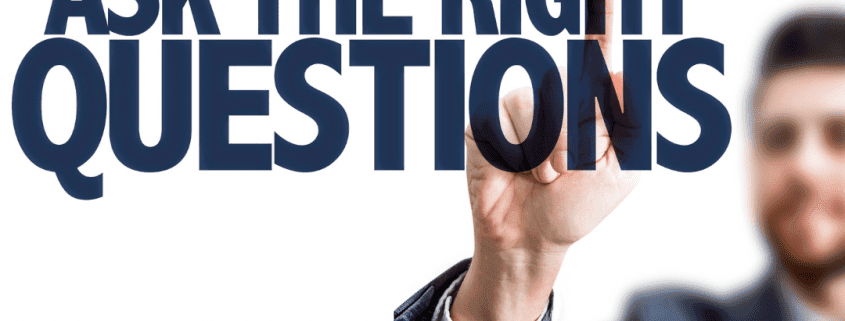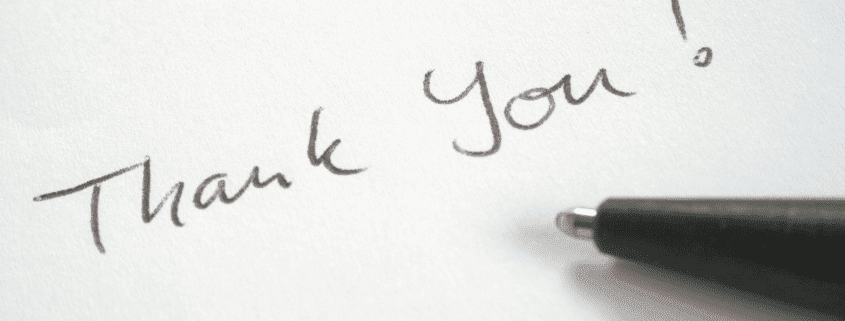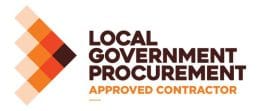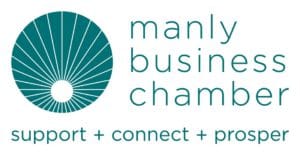Tag Archive for: #acetheinterview
Are long working hours getting you down? It’s more than likely. New research by the Australian National University (ANU) has found that people who work more than 39 hours a week are endangering their health.
Around two out of three Australians in full-time employment work more than 40 hours a week. Often that’s before unpaid work, such as caring for children and domestic work, is considered. The ANU researchers suggest that a major cultural shift regarding long working hours, as well as employer action, is needed to resolve the problems affecting work-life balance. Change is not going to happen overnight.
So, in the meantime, what can you do at the individual level to promote your health and wellness at work? There are a number of aspects to consider, including physical, emotional and occupational wellness. Here are 10 steps you can take to kick-start your personal health and wellness journey.
Eat healthily
You’ve probably heard the same a hundred times before, but eating well is an essential part of health and wellness. Swap the junk food for a healthy sandwich or salad, and replace your stash of chocolate bars and chips with nutritious snacks. And don’t forget to drink plenty of water throughout the day to stay hydrated.
Get enough sleep
The National Sleep Foundation in the US recommends an average of 7-9 hours for adults aged 18-64 years old, and 7-8 hours for the 65+ population. Other factors to consider include sticking to a sleep schedule, creating a comfortable sleeping environment, and turning off electronic equipment, such as mobile phones, before bed.
Exercise daily
Ryan Holmes, CEO of Hootsuite, wrote a great article about the benefits of exercise at work, referring to it as a “clear win-win – in terms of health, morale and productivity”. You could walk or cycle to work, for example, or head to the gym during your lunch break. A spot of exercise each day should refresh you and improve your concentration.
Make time for family and friends
Think about scheduling time for family and friends. This could be as simple as a blocking out a couple of evenings each week, or planning an activity on a scheduled day off. By freeing up time in advance, you are actively creating balance during your busy working week. And sharing quality moments with those you care about most.
Reduce stress
Work and excessive stress often go hand in hand. There are many approaches to tackling stress levels, including nearly every tip on this list. Additional tried-and-tested ways to regain a sense of control include deep breathing, mediation and yoga. Some people find it useful to write or speak daily positive affirmations, such as “I am fantastic at my job.”
Share ideas
Feeling valued at work is a key part of health and wellness. So share your talents and creativity with your colleagues and line manager. You could suggest a different way of approaching a task that would enhance productivity or increase profit. You could also take up opportunities to learn new skills to further your sense of worth (as well as your career).
Adapt your role
Now could be the time to talk with your employer if your workload is too great, or hours too long. Many companies are open to flexible working practices. Establish if others in your workplace are working part-time or have shifted roles. These precedents suggest that your employer would be open to discussing alternatives for you too.
Ask for a career break
Step back from your situation by taking time out of the workplace. Many companies offer sabbaticals to valued employees, or you may be eligible for long-service leave. Make the most of your time away by doing something different. And take the time to reflect on where you want to go with your job and your career.
Act with your voice
Major change to working conditions nearly always comes through collective action. Discuss the need for reduced working hours with your colleagues at work, join your union and/or lobby the government for change. In doing so, your individual voice becomes one of many, all acting with the same end goal in mind.
Change jobs
If you are unhappy in your current job, and cannot see a way to improve the situation, consider changing jobs. You may well find your ideal role in another workplace, with a workload and hours to suit. So take a deep breath and start looking.
How do you promote your health and wellness at work? We’d love you to share your experiences and suggestions.
We have all heard the expression, ‘First Impressions last’ well this is very true especially at interview stage. You have made it this far through the recruitment process so don’t throw away your chance on poor outfit choice!
It can be hard to know what to wear for your interview when in doubt, we say here at Optimal Recruitment, its always better to be overdressed than under-dressed. You should always stay away from denim and leave your hat and flip flops at home.
A three-piece suit is not always needed and what you wear does depend on where your interviewing and what image of yourself you want to portray. The best interview outfit is clean, well-fitting, appropriate for the company’s culture, and not attention-getting. We want the hiring manager to be discussing your skills and experience not your sparkly top or tattoos.
Here are a few ideas to help you for your big day:
Interviewing at a Corporate Workplace
Suit all the way! The whole works, pants/ skirt or shirt, jacket and tie, polished shoes, heels or closed in shoes. Stockings if it’s a formal workplace, hair tied back and brushed, jewellery should be minimal, tattoos and piercings if you can cover them up, make up natural and light, carry a small purse not an oversized bag, keep cologne and perfume to a minimum. Try and avoid patterned and funky designs go for a solid suit colour or small pinstripes if you can. Light coloured or white shirts are best and pick a conservative tie, avoid bow ties at your interview. Wear matching socks, polish your shoes and make sure your belt matches your shoes.
Interviewing at a Casual Business Workplace
Chinos and Buttoned shirt with a collar. Skirt or dress (knee length ideally), covered shoes, block colour dress / shirt. Hair should be combed and tied back from your face. Jewellery should be minimal and please don’t wear too much perfume cologne – we have all been stuck in a lift with someone over-powering our senses before. You don’t want the interviewer to be shuffling you out because they can’t breathe.
Interviewing for Outdoor Work
You can wear those jeans but make sure they are your best ones though with no holes, rips or fraying. Avoid t-shirts with slogans, never wear shorts to an interview unless you are applying for a lifeguard position. Closed in shoes in good condition are best and please avoid thongs and hats.
You want to look neat and tidy and employable!
Interviewing for a job at a cafe, dress shop, or a start-up
It can be tricky when deciding what to wear for some job positions. You probably want to go casual and wear those Jeans but you really should leave them at home. We suggest you wear trousers or chinos instead. There is no need for a tie but if you can, wear a collared shirt or buttoned shirt – ideally not a t-shirt. Ladies choose a skirt, pants and a blouse. Shoes – wear what suits your outfit but make sure they are in good condition – maybe give them a quick clean if they have lots of scuff marks.
In a nutshell:
- Keep scented items — cologne, perfume, and aftershave to a minimum.
- Ensure your nails are clean – especially if you are going for a position in hospitality.
- Hair should be combed and tied back from your face.
- Jewellery should be minimal
- If the company you are interviewing for has a set uniform, try and dress similar to their style.
- Keep the flashy, see through, ripped and torn clothes at home.
- A good rule of thumb is to dress like your boss
No matter what you are wearing to your interview you want to look polished and respectable. Just remember you are more likely to be taken seriously when you present yourself in a professional manner and take the time to attend to the little details.
And as my Nana says Dress for success
Good Luck!
You’ve screened the resumes and come up with a shortlist of applicants who can all do the job…on paper at least. So, how do you decide which candidate is ‘the one’? Interviews can provide employers with valuable information about an individual’s skills, motivation, achievements and cultural fit. Especially if you ask the right questions and allow candidates to do most of the talking.
Here are ten of our favourite questions to ask candidates at interview:
- Why are you interested in this role?
You want to separate out those candidates who have done their homework from the rest. You will find out which aspects of the position have appealed to them. Are these the same aspects that you believe are key to the role and to your company moving forward?
- What are the three most important attributes you bring to this role?
Flowing on neatly from #1, you will obtain further insights into candidates’ understanding of the role, and the contribution they could make. You can then assess whether what they offer fits with what you are looking for.
- Why are you leaving your current employer?
Candidates’ answers can reveal much about their attitudes, motivation and values at work. Your job is to establish whether their current experience has been a positive one and whether they are leaving for a good reason. If you have doubts, then probe carefully to find out more.
- What motivates you most in your current role?
You want to understand what makes candidates tick. They may be enthusiastic about new challenges, for example, or working in a strong team. Will these candidates find similar motivation in the role you are offering and, more broadly, in the culture of your company?
- What do you dislike the most about your current role?
Candidates generally find at least one aspect of their current role less enjoyable. It may be a mundane task, such as stuffing envelopes or totting up the petty cash. But it may be something more revealing – such as a candidate for a supervisor role who does not like dealing with conflict.
- Tell me about your greatest achievement in your career to date.
Strong candidates are passionate about their accomplishments and will relish the opportunity to talk about them. What they consider to be a great achievement will provide you with insights into their personality, values and working style.
- Describe a time when things didn’t go the way you wanted. What did you do?
An alternative to “What’s your greatest weakness?” which most candidates have anticipated and prepared for. Here, you are asking candidates for a concrete example of a difficult situation. Their responses will provide information about their problem-solving skills, ability to own an issue and, potentially, their interaction with others.
- How would your colleagues describe you at work?
Some candidates find it difficult to talk about their attributes and achievements, especially at interview. So instead, give them a chance to view themselves through the eyes of their co-workers. You will gain valuable insights into their personality, work ethic, and relationships with others in a team.
- Describe the best boss you have reported to.
Bosses vary in the way they supervise, organise, delegate and communicate. And candidates will vary in the way they respond to them. So find out the type of management style that best suits your candidates’ needs and personality. A candidate who is a self-starter, for example, would not be a good match for a micro-manager.
- Do you have any questions for me?
Well-prepared candidates will have done their homework, researched the role and company, and drafted a few questions. What candidates ask can provide information about what they consider important. Are they just after basic information, like salary, perks and vacation days? Or are they focused on company vision and opportunities for career progression?
Try incorporating some – or all – of these questions in your candidate interviews. They should help you separate the mismatches and maybes from the high potential candidate(s) who will thrive in your role.

Optimal Recruitment
Optimal Recruitment specialises in sourcing, screening, interviewing and shortlisting candidates for temporary and permanent roles on Sydney’s Northern Beaches, Sydney, NSW and Interstate. We deliver recruitment solutions on time and on budget.
Employers
Job Seekers
Optimal Recruitment
Contact Details
307 /20 Dale Street, Brookvale NSW 2100
02 8416 4181
info@optimalrecruitment.com.au
Our offices are a 400m walk from the BLine bus stop at Warringah Mall
 Optimal Recruitment
Optimal Recruitment














